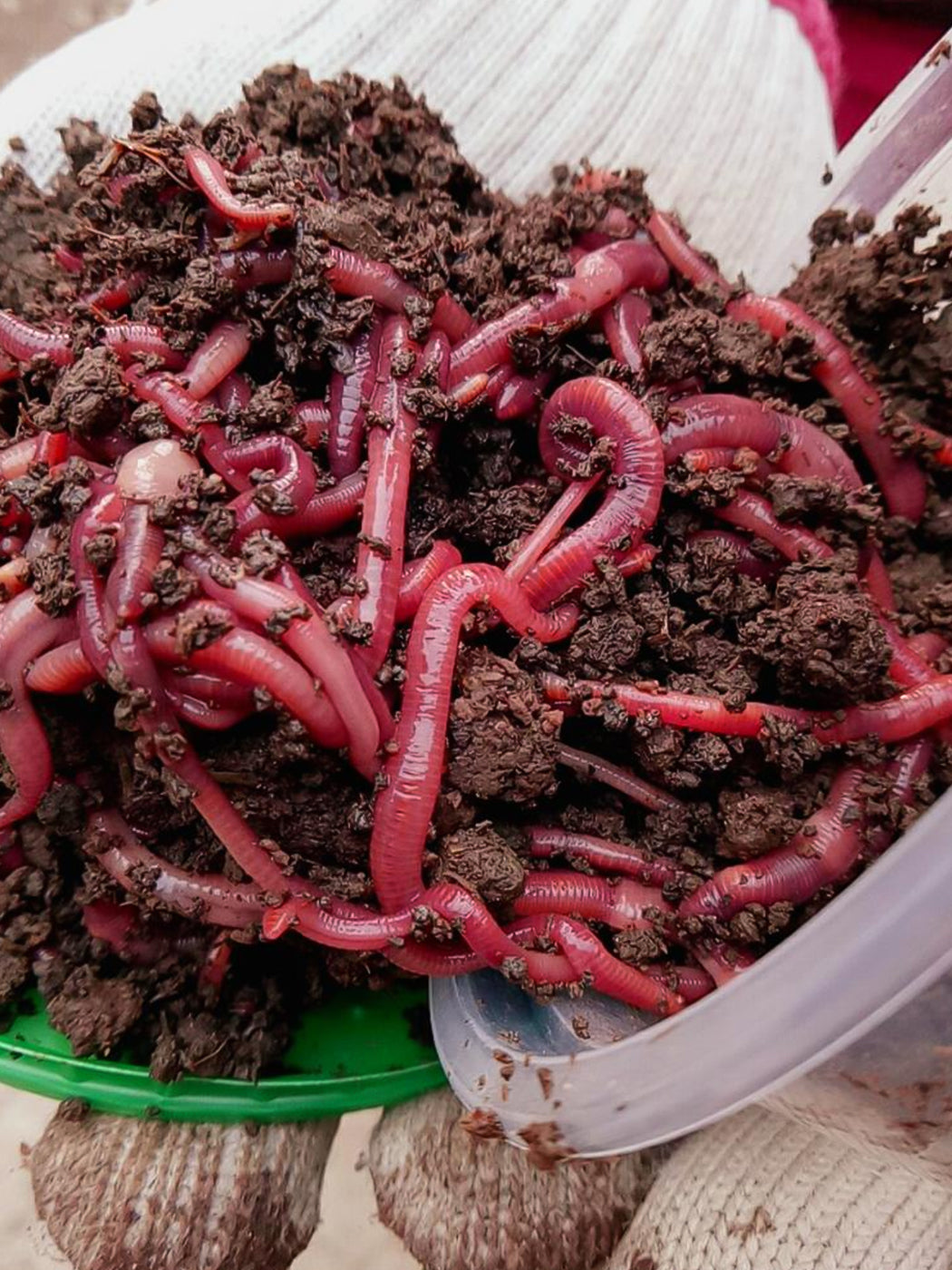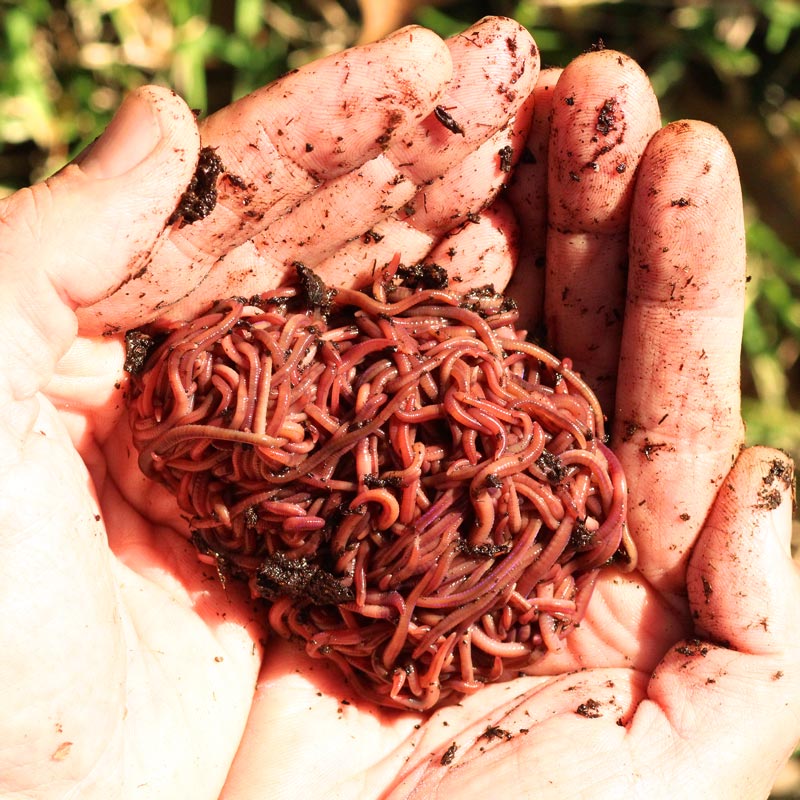Enjoy Healthy, Thriving Grass with the Help of Red Wiggler Express Lawn Care Solutions
The Unbelievable World of Red Wigglers: Boost Your Dirt Fertility Today
These tiny yet efficient microorganisms transform organic waste into useful worm castings, significantly enhancing soil wellness and advertising lasting methods. As we check out the advantages of vermicomposting and the functional actions to develop an effective worm bin, the potential effect of these worms on your horticulture success comes to be significantly apparent.
Recognizing Red Wigglers
Red wigglers, medically referred to as Eisenia fetida, are a species of earthworm that play a critical function in boosting dirt fertility. These worms grow in organic-rich atmospheres, such as compost stacks and rotting plant material, where they take in natural waste and eliminate nutrient-dense spreadings. Their one-of-a-kind composition, including a fractional body and a clitellum, permits them to duplicate rapidly and efficiently procedure big quantities of natural matter.

The eco-friendly importance of red wigglers prolongs beyond simple waste handling; they contribute to the dirt food web, promoting a diverse neighborhood of microbes that even more boost soil wellness. Understanding the biology and habits of red wigglers is vital for using their complete capacity in sustainable agriculture and horticulture practices.
Benefits of Vermicomposting
(Red Wiggler Express)Harnessing the power of red wigglers via vermicomposting offers many advantages that significantly enhance dirt health and wellness and fertility. Among the main advantages is the production of nutrient-rich worm spreadings, which are an excellent natural fertilizer. Red Wiggler Express. These spreadings contain necessary nutrients like nitrogen, phosphorus, and potassium, advertising durable plant development and enhancing crop yields
Additionally, vermicomposting boosts dirt framework and oygenation. The existence of worm castings boosts dirt appearance, enabling far better water retention and water drainage. This balanced wetness level is important for root growth and the overall health and wellness of plants. Additionally, red wigglers assist damage down natural matter, increasing disintegration and reusing nutrients back right into the soil.
Vermicomposting likewise cultivates microbial task, which is important for a healthy dirt ecosystem. Beneficial microbes thrive in the existence of worm castings, assisting in the break down of organic materials and boosting nutrient accessibility to plants.
Last but not least, vermicomposting acts as an effective waste monitoring remedy, minimizing land fill waste by reusing kitchen Red Wiggler Express area scraps and various other organic products. This not only adds to ecological sustainability but additionally promotes a round economic climate within horticulture and agriculture.
How to Establish a Worm Bin
Establishing a worm bin is an uncomplicated process that can considerably enhance your composting initiatives. Begin by picking a suitable container, which can vary from a commercially readily available worm bin to a simple plastic or wooden box (Red Wiggler Express). Make sure the container has sufficient air flow; tiny holes in the cover and sides will facilitate air flow
Following, produce a bed linen layer to provide a comfy atmosphere for the red wigglers. This can be made from shredded newspaper, cardboard, or coconut coir, moistened to a moist, sponge-like consistency. Fill up the container to around one-third complete with this bed linen product.
Once the bed linens is prepared, it's time to present the worms. Red wigglers prosper in natural waste, so location them delicately onto the bed linen. Cover the worms with a light layer of added bed linens to aid them acclimate.
Feeding Your Red Wigglers
Offering the right food for your red wigglers is crucial for their wellness and the performance of your composting system. Red wigglers flourish on a diverse diet plan, mostly consisting of natural materials such as fruit and veggie scraps, coffee premises, and shredded paper. These materials not only supply vital nutrients but additionally add to the microbial activity in the worm bin, which is important for the worms' digestion.
It is essential to stay clear of certain foods, such as milk items, oils, and meats, as these can draw in pests and create undesirable smells. Furthermore, citrus peels and excessively hot foods should be limited as a result of their prospective to hurt the worms. A well balanced approach to feeding includes keeping track of the amount of food introduced to the bin, guaranteeing that it is taken in within an affordable period to avoid excess waste build-up.
To promote optimal digestion, it is advantageous to slice or shred bigger food items before adding them to the container. This method boosts the surface for microbial action, promoting quicker decay and enhancing the total efficiency of your composting system. Routinely observing the worms' feeding habits will help you adjust their diet regimen as needed.
Utilizing Worm Castings in Your Garden

(Red Wiggler Express)Including worm castings into your yard can be achieved by blending them into the soil or utilizing them as a top dressing. The slow-release nature of these castings guarantees that nutrients are available to plants over an extensive period, minimizing the requirement for synthetic fertilizers. Furthermore, worm spreadings have advantageous bacteria that promote healthy and balanced dirt environments, boosting the general strength of your garden.
To optimize the advantages, purpose to use around one component worm spreadings to 3 parts dirt in your planting beds. Regular applications can result in improved crop yields and much healthier plants, making worm castings an invaluable source for both amateur and seasoned garden enthusiasts alike. By utilizing this natural change, you can grow a successful garden while adding to sustainable gardening methods.
Verdict
In conclusion, red wigglers exemplify the vital role of vermicomposting in enhancing soil fertility. Their capacity to convert natural waste right into nutrient-rich castings significantly improves soil framework and sustains microbial variety.